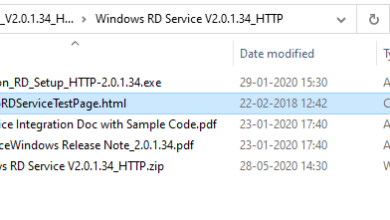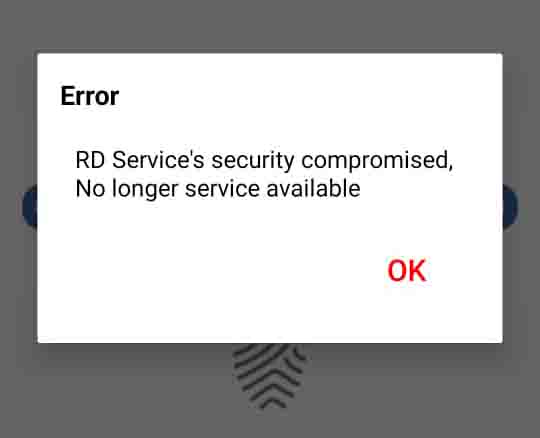
Excerpt
If your phone has been lost or stolen, the police IMEI tracker system can help you find it fast. This system uses the phone’s IMEI number to track its location. To use the system, you will need to know your IMEI number. You can find this number by dialing *#06# on your phone. Once you have your IMEI number, you can contact your police department to report your phone lost or stolen. They will then be able to use the IMEI number to track the phone’s
1) Lost Phone? Find It Fast with Police IMEI Tracker System
The police IMEI tracker system is a tool used by law enforcement agencies to track stolen or lost mobile phones using their unique IMEI (International Mobile Equipment Identity) number. The IMEI number is a 15-digit code that is assigned to each mobile phone, which can be used to track its location and status.
2) How does the police IMEI tracker system work?
When a mobile phone is reported as stolen or lost, the police can use the IMEI number to track the phone’s location and attempt to recover it. The process of tracking stolen or lost mobile phones using IMEI numbers can vary from country to country, but generally involves the following steps:
a) Registering the stolen or lost phone
The owner of the phone needs to report the theft or loss to the police and provide them with the IMEI number of the phone. This information is then entered into a database that can be accessed by law enforcement agencies.
b) Tracking the phone
Once the phone is registered as stolen or lost, the police can use the IMEI number to track its location. In some countries, the police have direct access to a centralized database of IMEI numbers, which can be used to track stolen or lost phones. In other countries, the police may need to work with mobile service providers to obtain information about the phone’s location and status.
c) Recovering the phone
Once the phone’s location has been identified, the police can attempt to recover the phone. This may involve working with other law enforcement agencies or mobile service providers to locate and seize the phone.
3) Benefits of the police IMEI tracker system
The police IMEI tracker system can be an effective tool for recovering stolen or lost mobile phones and preventing unauthorized access to personal information. By registering stolen or lost phones and using the IMEI tracker system, the police can:
- Increase the chances of recovering stolen or lost phones: By using the IMEI number to track the phone’s location, the police can increase the chances of recovering stolen or lost phones.
- Prevent the misuse of stolen or lost phones: By tracking the phone’s location and status, the police can prevent the misuse of stolen or lost phones, such as using them to make unauthorized calls or access personal information.
- Deter phone theft: The knowledge that stolen or lost phones can be tracked and recovered can act as a deterrent for phone theft.
4) How Police helps to recover Lost Phone?
In some countries, law enforcement agencies have direct access to a centralized database of IMEI numbers, which can be used to track stolen mobile phones. When a mobile phone is reported as stolen, the police can enter the IMEI number into the database and receive information about its location and status.
However, in other countries, the process of tracking stolen mobile phones using IMEI numbers can be more complicated. In these cases, the police may need to work with mobile service providers to obtain information about the phone’s location and status.
It’s worth noting that while a police IMEI tracker can be an effective tool for recovering stolen mobile phones, it’s important to take steps to prevent theft in the first place. This may include using a password or biometric authentication to secure your phone, keeping your phone in a secure location, and being cautious when using your phone in public.

Bonus Trick
CEIR Mobile tracker (IMEI Block/unblock) : https://www.ceir.gov.in/
5) Privacy Implications of Using the Police IMEI Tracker System
In recent years, law enforcement agencies have employed increasingly sophisticated tools and technologies to aid in their investigative efforts. One such tool is the use of the International Mobile Equipment Identity (IMEI) tracker system, a controversial and powerful tool for tracking mobile devices. While this technology has undoubtedly proven beneficial in solving crimes and locating stolen devices, it raises significant concerns regarding individual privacy and civil liberties.
6) Privacy Implications:
a) Location Privacy
The primary concern with the use of the police IMEI tracker system is its impact on location privacy. When law enforcement can track mobile phones using IMEI numbers, it becomes possible to create a detailed history of an individual’s movements. This raises significant questions about the potential for unwarranted surveillance and the abuse of such information.
b) Data Access and Storage
The use of IMEI tracking also means that law enforcement can access data stored on mobile devices, including call logs, text messages, and other personal information. This access can be invasive and goes beyond what is necessary for locating a lost or stolen device.
c) Civil Liberties
Critics argue that the use of the IMEI tracker system can infringe upon an individual’s civil liberties, particularly if used without appropriate legal oversight, such as a warrant. Unauthorized or overreaching use of this technology can lead to unwarranted surveillance and privacy violations.
d) Security Risks
There is also the concern that the police IMEI tracker system could be vulnerable to hacking and misuse. If unauthorized parties gain access to this system, they could potentially track individuals’ phones and access sensitive data, further compromising privacy and security.
e) Lack of Transparency
In some cases, the use of IMEI trackers may lack transparency and oversight, making it difficult for individuals to know when and why their devices are being tracked. This can erode trust in law enforcement agencies and the justice system.
7) Tips to prevent mobile phone theft
Preventing mobile phone theft is essential to protect your personal data and avoid the hassle of replacing a stolen device. Here are some tips to help you reduce the risk of mobile phone theft:
- Use a Passcode or Biometric Lock: Set up a strong passcode or use biometric authentication like fingerprints or facial recognition to lock your phone. This adds a critical layer of security.
- Enable Remote Tracking and Wiping: Activate the “Find My Phone” feature on your device, which allows you to track its location and remotely wipe your data in case it’s lost or stolen.
- Keep Your Phone Updated: Regularly update your phone’s operating system and security software to patch vulnerabilities and keep your device secure.
- Be Cautious in Public: Be mindful when using your phone in public places, especially in crowded or unfamiliar areas. Thieves often target distracted individuals.
- Use a Discreet Phone Case: Avoid flashy or branded phone cases that might attract attention. A discreet case can help your phone blend in.
- Keep Your Phone Out of Sight: When not in use, keep your phone out of sight. Don’t leave it on tables, car seats, or exposed in your pocket or bag.
- Avoid Leaving Your Phone in Your Car: Car break-ins are common for stolen phones. If you must leave your phone in the car, lock it in the glove compartment or trunk.
- Be Wary of Strangers: If someone approaches you, asking to borrow your phone, be cautious. It’s often a tactic used to steal devices. Offer to make the call for them instead.
- Use a Cross-Body Bag or Wallet: When carrying your phone in a bag or purse, use one with a cross-body strap and zippers to make it harder for thieves to snatch and run.
- Secure Your Home: Make sure your home is secure and your phone is not easily accessible to burglars. Use alarms and locks on doors and windows.
- Avoid Leaving Your Phone Unattended: Even in trusted environments, like your workplace or a friend’s house, don’t leave your phone unattended.
- Register Your Device: Register your phone’s IMEI (International Mobile Equipment Identity) number with your service provider. This can help track and recover your phone if it’s stolen.
- Use Anti-Theft Apps: Install anti-theft apps that can remotely lock or track your device. These apps can be very helpful in case your phone is stolen.
- Backup Your Data: Regularly back up your phone’s data to the cloud or a computer. This ensures that even if your phone is stolen, you won’t lose valuable information.
- Educate Yourself: Stay informed about common theft tactics and trends in your area. Knowledge is your best defense.
- Report a Stolen Phone: If your phone is stolen, report it to the police and your service provider immediately. The sooner you do this, the better chance you have of recovering your device.
Remember that no preventive measure is foolproof, but by following these tips, you can significantly reduce the risk of mobile phone theft and protect your personal information.
Related Articles
8) FAQs – Frequently Asked Questions
Q. What is an IMEI number?
A. An IMEI number is a unique 15-digit code that is assigned to each mobile phone. It is used to identify and track the phone’s location and status.
Q. How does the police IMEI tracker system work?
A. When a mobile phone is reported as stolen or lost, the police can use the IMEI number to track its location and attempt to recover it. The process involves registering the stolen or lost phone, tracking its location, and recovering it.
Q. Can the police track any mobile phone using its IMEI number?
A. The police can track mobile phones that have been reported as stolen or lost and registered in the IMEI database. They may also need to work with mobile service providers to obtain information about the phone’s location and status.
Q. Is it possible to track a mobile phone using its IMEI number without involving the police?
A. There are some online services that claim to be able to track mobile phones using their IMEI numbers, but these may not always be reliable or accurate. It is recommended to involve the police in any attempts to track a stolen or lost phone.
Q. Can the police use the IMEI tracker system to prevent phone theft?
A. The police IMEI tracker system can act as a deterrent for phone theft, as the knowledge that stolen or lost phones can be tracked and recovered may discourage potential thieves.
Q. What should I do if my mobile phone is stolen or lost?
A. If your mobile phone is stolen or lost, you should report it to the police and provide them with the IMEI number of the phone. This will increase the chances of recovering the phone and prevent unauthorized access to your personal information.
Conclusion
The police IMEI tracker system is a valuable tool for recovering stolen or lost mobile phones and preventing the misuse of personal information. By reporting stolen or lost phones to the police and providing them with the IMEI number of the phone, owners can increase the chances of recovering their phone and preventing unauthorized access to their personal information.


Thank you for the info.